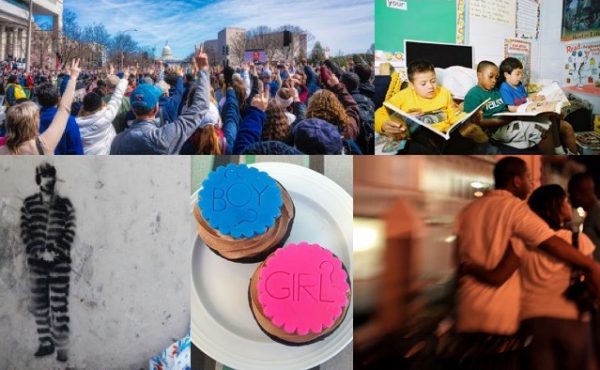
Welcome to another sociology-filled week at TSP! We’ve got social science research on prison conditions around the globe, racial disparities in the deaths of family members, and a look at who participated in the March for Our Lives protests.
There’s Research on That!:
“Prison Conditions Around the Globe,” by Isabel Arriagada and Caity Curry. Social science research on prisons can help us understand the conditions of prison life and how broader social context shapes prison structures.
“Race and Antiracism in Schools,” by Lucas Lynch. In light of debates over history textbooks and lesson plans about slavery, we rounded up social science research on antiracism in education.
Discoveries:
“Racial Disparities in Loss of Family Members,” by Jean Marie DeOrnellas. New research in the Proceedings of the National Academy of Sciences finds that Black Americans are more likely to experience the death of multiple family members and to experience the death of a family member at an earlier age than White Americans.
Clippings:
“March for Our Lives Wasn’t Just about Youth,” by Jasmine Syed. The Washington Post talks to Dana R. Fisher about the wide crowd of people who participated in the March for Our Lives protests.
“Parenting Beyond the Gender Binary,” by Allison Nobles. New York Magazine talks to sociologist-parents about trying to raise children without a rigid gender binary.
From Our Partners:
Sociological Images:
“Pocket-sized Politics,” by Evan Stewart.
Contexts:
“Tobacco 21,” by Paula M. Lantz.
Council on Contemporary Families:
“Black Marriages in America: An Interview with the Authors of Marriage in Black,” by Arielle Kuperberg.
And a Few from the Community Pages:
- Cyborgology reviews the 2017 update of the book, Alone Together.
- Center for Holocaust and Genocide Studies interviews Ali Ahmida about his work on genocide in colonial Libya.

Comments